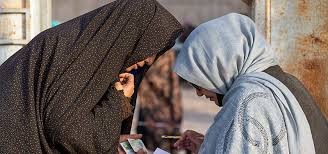- Courses
- GS Full Course 1 Year
- GS Full Course 2 Year
- GS Full Course 3 Year
- GS Full Course Till Selection
- Online Program
- GS Recorded Course
- NCERT (Recorded 500+ Hours)
- Polity Recorded Course
- Geography Recorded Course
- Economy Recorded Course
- AMAC Recorded Course
- Modern India, Post Independence & World History
- Environment Recoded Course
- Governance Recoded Course
- Science & Tech. Recoded Course
- International Relations and Internal Security Recorded Course
- Disaster Management Module Course
- Ethics Recoded Course
- Essay Recoded Course
- Current Affairs Recoded Course
- CSAT
- 5 LAYERED ARJUNA Mentorship
- Public Administration Optional
- ABOUT US
- OUR TOPPERS
- TEST SERIES
- FREE STUDY MATERIAL
- VIDEOS
- CONTACT US
Delhi High Court's Directive on Organ Transplant Process
Delhi High Court's Directive on Organ Transplant Process
A retired Indian Air Force officer, suffering from kidney failure, tragically passed away while waiting for permission for a kidney transplant. This incident highlighted a significant issue in India's organ transplant system: the lengthy and complex process of obtaining necessary approvals.
Delhi High Court's Intervention
- The court noted that delays in the transplant process cause immense mental and physical suffering for patients, donors, and their families. It focused that these delays could be life-threatening for patients awaiting transplants.
- Recognizing the urgent need for timely organ transplants, the Delhi High Court recommended completing the organ transplant process within 6-8 weeks for cases involving living donors.
In India, people started transplanting human organs and tissues in 1962. At first, there were no rules for organ transplant, and the illegal sale of organs was very common. The law that controls organ transplantation was made in 1994. It was later changed in 2011, and new rules were applied in 2014.
Understanding the Transplantation of Human Organs and Tissues Act, 1994
- Purpose of the Law: This act regulates the donation and transplantation of human organs and tissues in India. It's designed to ensure ethical practices in organ donation and prevent commercialization.
Key Provisions:
- Donor Eligibility: The act primarily allows organ donations from close relatives (like parents, siblings, children, and spouses). It also permits donations from distant relatives or friends but requires additional scrutiny to prevent financial transactions in exchange for organs.
- Documentation and Interviews: To prevent illegal organ trade, the law mandates thorough documentation and interviews to establish the relationship between the donor and recipient.
- Strict Penalties: Involvement in illegal organ trade can lead to severe penalties, including up to 10 years in prison and significant fines.
Role of the Authorisation Committee
-
Function: The Authorisation Committee is responsible for supervising and approving organ transplant cases, particularly where donors and recipients are not close relatives.
-
Ensuring Ethics: The committee's main task is to ensure that the donation is made ethically, without any commercial motives.
The Transplantation of Human Organs and Tissues Rules, 2014
- Detailed Guidelines: These rules provide specific guidelines for the constitution and functioning of the Authorisation Committee.
- Emergency Provisions: In cases where a recipient requires urgent transplantation, the rules allow for speed up evaluations and decisions.
The Specific Case Before the Delhi High Court
- Patient's Struggle: The petitioner's struggle to get a transplant approval underlines the inefficiencies and bureaucratic difficulties in the current system. His application was rejected due to the non-availability of a near relative donor, leading to delays.
Court's Decision and Its Importance
- Mandating Efficiency: The court ruled that the entire process, including paperwork, interviews, and decision-making, should be completed within fixed timelines.
- Analysis of the Problem: The court recognized that the lack of specific timelines for pre-transplantation interviews and decisions often leads to unnecessary delays.
- Proposed Solution: The court suggested a more efficient process where the Authorisation Committee schedules and conducts interviews within two weeks of receiving an application, aiming to complete the entire process in 6-8 weeks.
Conclusion
The Delhi High Court's decision marks a significant step towards reforming the organ transplant system in India. By advocating for a more efficient and timely process, the court aims to reduce the physical and emotional and mental stress on patients and their families, potentially saving lives that might otherwise be lost due to procedural delays. This decision serves as a crucial reminder of the need for systemic improvements in healthcare, especially in areas as critical as organ transplantation.



